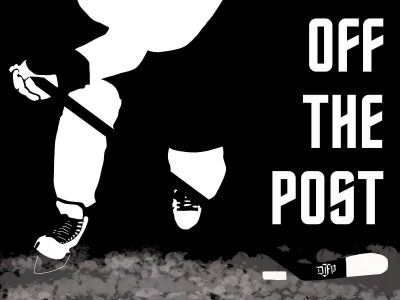The Montréal Canadiens’ star goaltender and franchise face Carey Price announced his voluntary leave of absence to join the NHL/NHLPA player assistance program, which provides resources for mental health and substance abuse issues, among others, for players and their families.
The Oct. 7 press release follows an outstanding 14-year career with the Habs, and the team believes Price will return to the ice this season.

Price’s decision to prioritize his mental health is courageous in a league and industry that too often turns a blind eye to the ‘invisible’ injuries their players face. The stigma around mental health exists in all facets of our society, but especially in a sport where the expectation is to be superhuman.
Hockey players take pride in the grit and toughness that is required to survive at the professional level. In 2015, Ryan McDonagh played a handful of playoff games for the New York Rangers on a broken foot, freezing it before each competition to numb the pain. Zdeno Chara dressed for multiple games for the Bruins in the 2019 Stanley Cup Finals with a broken jaw. The Lightning’s Victor Hedman powered through a torn meniscus for months during the 2020-2021 campaign.
It is, to some degree, what makes the sport so lovable — these guys will do whatever it takes to raise the Stanley Cup, and as a fan, that gets you amped up. But when is the line crossed? When do these injuries turn from a matter of pride to a matter of deep concern?
The NHL culture breeds superheroes. Players are praised for their strength and what they do on the ice, but what happens when they step off the big stage should be of matching importance.
The game doesn’t only take a physical toll, it takes a mental one, too. But the only doctors in those NHL locker rooms are for missing teeth and fractured hands — there seems to be a hole in where players can turn for emotional support.
Price has been showered with love and encouragement from the Canadiens organization and hockey fans around the world since making his departure public. The response speaks to the gradual positive change in how the sport’s community understands matters of mental health.
The problem in my eyes, though, is that it got this bad in the first place.
It’s easy for the NHL to show its support for Price once he has already hit his breaking point. From a PR standpoint, the posts and tweets look good — but that’s not how tangible change is made. The league needs to take a hard look at the ‘tough-guy’ system that has been perpetuated since its founding and implement preventive resources rather than waiting until their players can’t take it anymore.
Vegas Golden Knights goaltender Robin Lehner had a lot to say about this topic in his Sep. 28 interview with the “Spittin’ Chiclets” crew. From an inside perspective, he stressed that like any other people, players are struggling too, but mental illnesses such as OCD and anxiety are masked as being superstitious or stressed for a game.
Lehner called for greater education and awareness of these serious issues in locker rooms, and that must come from the top. This needs to be a cultural shift, an uphaul of the stigmas that don’t disappear unless actively worked against.
Price — being the superstar that he is — has a tremendously influential platform in the league. Taking this step for himself and his family will hopefully serve as a message to his counterparts around the world that it is okay to ask for help — that it doesn’t mean you’re showing weakness, but instead, strength. Now it’s up to the NHL to be there for their players in a way they haven’t been before.




Great article and important message